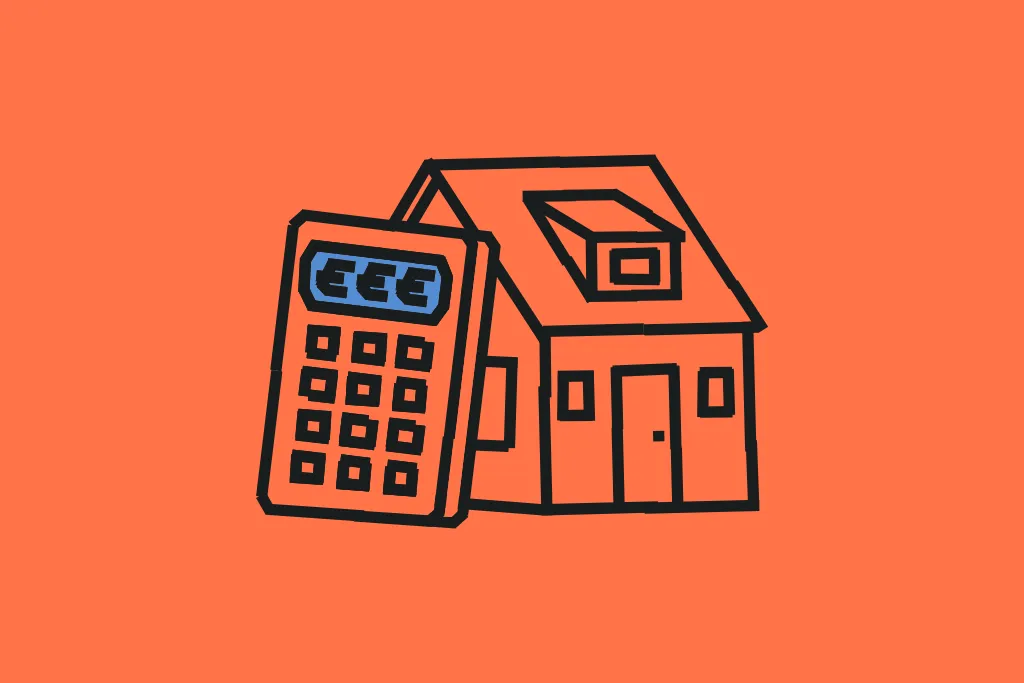What are the notary fees when buying a house in 2025?
When buying a home in 2025, you will always pay notary fees. These are fees for officially recording the purchase and the mortgage. Without a notary, you cannot have a house put in your name. These are the main costs you can expect to pay when buying a notary in 2025:
- Costs for the deed of delivery €500 - €900. The notary draws up the deed of transfer, which officially puts the property in your name. Without this deed, the transfer cannot take place.
- Cost for mortgage deed €400 - €800 (if you take out a mortgage). When you take out a mortgage, the notary draws up a mortgage deed. This document records that you are taking out a loan from a lender.
- Land Registry fees €90 - €180 per registration. The deed of delivery and mortgage deed must be registered at the Land Registry. The notary will arrange this registration on your behalf.
- Notary fee €300 - €800. This is the fee the notary charges for the service. The amount varies by notary office and region.
- Cost for a cohabitation contract €200 - €600 (optional). Are you buying a house together, but not married or registered as partners? Then a cohabitation contract may be required.
- Cost of a second mortgage €400 - €900 (optional). Are you taking out an additional loan for a remodel, for example? Then a separate mortgage deed must be drawn up.
- VAT on notary fees 21%. All notary fees are charged with 21% VAT. This means that the final amount will be higher than rates quoted excluding VAT.
Want to save on notary fees? Then compare several notary offices and see if they offer an all-in fee.
{{cta}}
Average notary fees for home purchase
The average notary fees when buying a house in 2025 are between €900 and €2000. The exact cost depends on the notary office, region and additional services.
For a home without a mortgage, you pay an average of €900 to €1500 in notary fees. Are you buying a house with a mortgage? Then the costs are usually between €1300 and €2000. In some cases the average costs may be higher, for example if you need additional documents.
Want to save money? Then it's smart to compare different notaries.

Notary fees mortgage in 2025
When you take out a mortgage, you always pay notary fees. The notary draws up the mortgage deed and registers it with the Land Registry. Without this deed, the mortgage lender cannot obtain security on the property.
The average notary fees for a mortgage in 2025 are between €400 and €800. These are the main costs:
- Drafting the mortgage deed €300 - €600. The notary makes a legal document stating that the mortgage lender has a right to the property.
- Registration of the mortgage deed at the Land Registry €90 - €180. This ensures that the mortgage is officially registered.
- Notary fee €100 - €300. This is the fee for the notary's services.
- Cost of a second mortgage €400 - €900, optional. Are you taking out an additional loan, such as for a remodel? Then you need an additional mortgage deed.
Want to know all about notary fees for a mortgage and how to save? Then read the full article on notary fees mortgage in 2025.

What does a notary do when buying a house?
When buying a house, you always need a notary. The notary ensures that the home is legally in your name and handles the financial arrangements. These are the main tasks of a notary when buying a house:
- Drafting the mortgage deed and the deed of delivery.
- Review of purchase contract and legal terms.
- Registration of deeds with the Land Registry.
- Arranging payment to seller and settlement of transfer.
- Oversee the signing of all official documents.
Want to know exactly what a notary does when buying a house? Then read the full article on what a notary does.

Are notary fees deductible when buying home in 2025?
When buying a home in 2025, some notary fees are deductible. This means you are allowed to offset certain expenses against your income tax. As a result, you will pay less tax.
Only the notary fees for the mortgage deed are tax deductible. This applies to:
- Cost of preparing the mortgage deed.
- Registration fees at the Land Registry for the mortgage deed.
- Advisory and brokerage fees for the mortgage.
Notary fees for the delivery deed and other costs, such as registering the property with the Land Registry, are not deductible. These costs are included in the purchase price of the property.
Want to reclaim deductible notary fees? You do this on your annual tax return. You add the costs to the mortgage interest deduction under the heading costs of your own home.

Here's how to save on notary fees
Notary fees when buying a home can add up considerably. Fortunately, there are ways to save. Follow these steps to keep notary fees as low as possible:
- Compare notary fees in your area. Not every notary office charges the same prices. Some work with an all-in fee, while others charge separate fees. Get multiple quotes and choose the most advantageous option.
- Choose a notary outside expensive cities. In big cities, notary fees are often higher. By choosing a notary in a smaller town, you can sometimes save hundreds of dollars.
- Purchase only the mandatory services. Additional services such as a cohabitation agreement or a second mortgage incur additional costs. Don't need these? Then you save directly on the total notary fees.
- Check if your notary fees are tax deductible. The notary fees for the mortgage deed are income tax deductible. As a result, you get a portion of the cost back through your tax return.
- Choose a fixed fee arrangement. Some notary offices work with fixed rates. This prevents surprises later. Ask in advance if the price includes all additional costs.
By following these steps, you can save significantly on notary fees. Want to compare quotes right away? Then search online for a notary in your area.

Buy a house cheaply and quickly with homeup
When buying a house, you always pay notary fees. But did you know that you can save significantly on other costs? With homeup you buy a home quickly and inexpensively, without unnecessary expenses. This is how homeup helps you save smartly:
- Flat rate of €2749 with no hidden costs. No surprises afterwards, you know in advance exactly what you are paying.
- Fast and efficient purchase guidance. Decide faster and avoid unnecessary delays.
- Legal review of the purchase contract. Making sure everything is legally correct before you sign.
- Personalized advice on notary fees. We help you choose an affordable notary.
Want to buy your dream home without extra high costs? Engage homeup as a buying agent and see how they can help you.
{{cta}}
Frequently asked questions about notary fees
When buying a house, you always have to deal with notary fees. But how much exactly do you pay and what costs are included? In the frequently asked questions below, we provide clear answers so you know exactly where you stand.
What are notary fees?
Notary fees vary by notary office and region. On average, you will pay €900 to €2000 for notary fees when buying a house. The exact cost depends on the services you need. Want to save money? Then it's smart to compare multiple notary offices.
What are mortgage notary fees in 2025?
Notary fees for a mortgage in 2025 average between €400 and €800. This amount is for drawing up the mortgage deed and registration at the Land Registry. Do you take out a second mortgage? Then you will pay additional notary fees. The costs differ from one notary office to another, so comparing can help you save.
What are the notary fees when transferring house?
Notary fees when transferring a house consist mainly of the cost of the deed of transfer. This document makes you the official owner of the property. On average, this costs between €500 and €900. If you take out a mortgage, there will be additional costs.
What will a notary cost on average in 2025?
In 2025, the average notary fees will be between €900 and €2000. The price depends on the notary office, the region and additional services such as a cohabitation contract or a second mortgage. Fees vary by notary, so comparing can save money.

{{vragen}}



